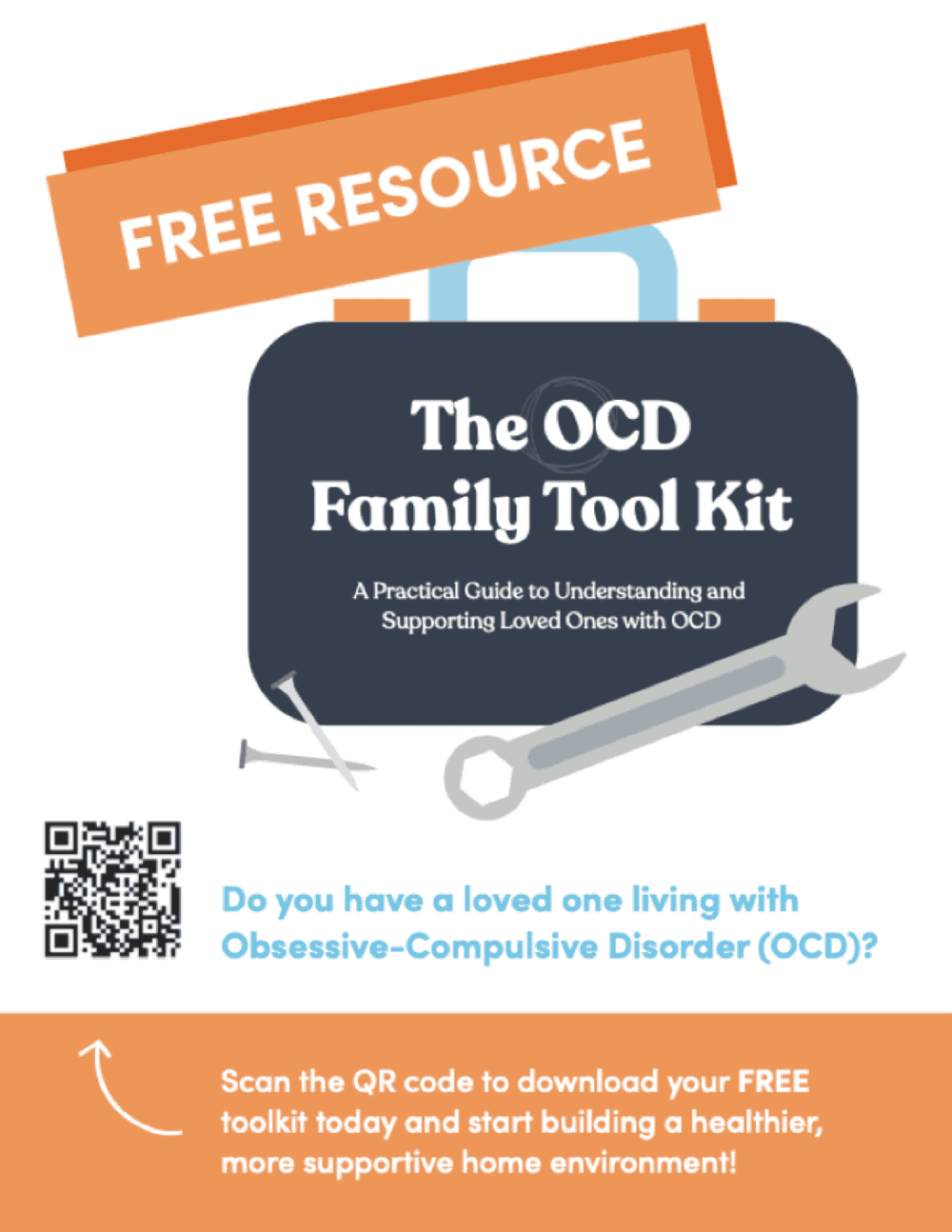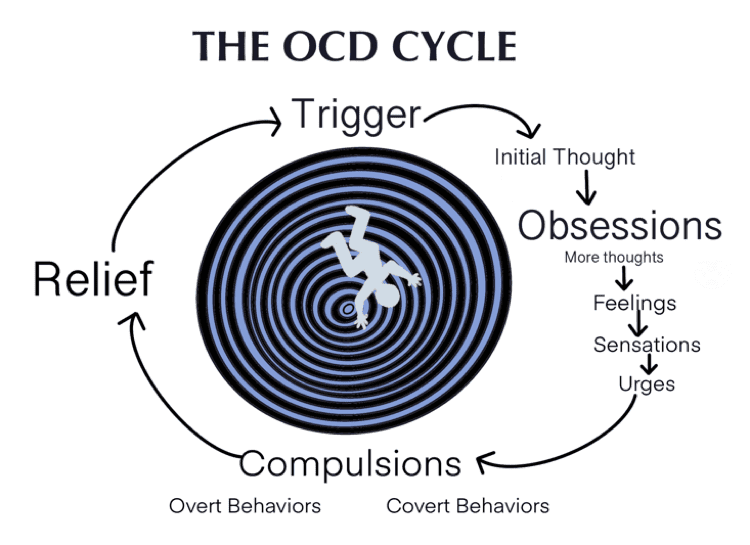OCD Treatment
Expert care and practical tools to manage and overcome OCD.

Our specialized approach to OCD treatment, built on decades of experience and evidence-based practices, can help you disrupt the OCD cycle and live a life aligned with what matters most to you.
Real Support and Real Results for OCD
If OCD is holding you back, now is the time to take action. Our compassionate team offers evidence-based treatment to help you navigate the challenges of OCD with confidence.
Schedule an appointment today and take the first step toward lasting change!
Specialized. Experienced. Results.
At Mindset Family Therapy, we specialize in treating OCD and OC-related disorders, setting us apart from general practitioners. With over 30 years of proven success, our focused approach consistently delivers real results, helping clients break free from OCD.
Our expertise is recognized on a national level, as we are regular presenters at the International OCD Foundation conferences, sharing our knowledge and treatment strategies with professionals across the field.
Our dedication to OCD treatment extends beyond our clients. We provide consultation and training for other psychotherapists, equipping them with the tools to effectively treat OCD and related disorders.
Many of us have experienced the impact of OCD and OC-related disorders in our own lives, giving us a unique perspective and a genuine commitment to helping our clients find relief and healing.
Our therapists are trained by renowned experts in the field, bringing both professional expertise and personal understanding to our practice. We stay current with the latest research and treat OCD by using these evidence-based treatment modalities:
- •Exposure and Response Prevention (ERP). The behavior part of cognitive-behavioral therapy (CBT). ERP is the gold-standard treatment for OCD.
- •Acceptance and Commitment Therapy (ACT). ACT is an exposure-based model and has ERP built into it. ACT has been shown to be effective in promoting and success of ERP in individuals struggling with OCD.
- •Inference-Based Cognitive Behavioral Therapy (I-CBT). I-CBT targets obsessional doubt and underlying reasoning process (inferential confusion) that maintains obsessional doubt. Can be used in conjunction with ERP. Similar efficacy as ERP.
What to Expect in Treatment
An important step is to recognize that OCD is a genetic predisposition, neurological condition, and a behavioral challenge. OCD is not your fault! During treatment, you will learn these psychological flexibility skills to disrupt the OCD cycle:
- •Become more open to painful internal experiences. Learn skills to get unstuck from them and allow them to come and go without getting caught in the OCD trap.
- •Enhance your awareness so you can connect with the here and now and recognize that you are aware of being aware without having to become absorbed in compulsive and avoidant behaviors to get rid of internal events (e.g., thoughts and feelings).
- •Become actively engaged in what is worth (values) your focus, time, and energy and choose to do what matters most in your life.

"Even if you're on the right track, you'll get run over if you just sit there."
Will Rogers
Values-Based Exposures
Values-based exposures are based on what you value (what matters most to you). The exposures are so that you can start living the life you want and deserve.
- •Bodily Sensations - Learn to change your relationship with your sensations and emotions.
- •Imaginal Exposures - Prepare to start living life by imagining and visualizing doing what matters even though OCD may be present.
- •Real-Time or In-Vivo Exposures - Start doing the things that matter to you and be with those who matter in your life!
You can learn to be actively engaged in what matters most each and every day!
Common OCD Themes
We treat all common themes in OCD including:
- •Moral and Religious Scrupulosity
- •Perfectionism
- •Harm
- •Sexual
- •Relationship
- •Existential or Philosophical
- •Pedophiliac
- •Sexual Orientation
- •Contamination
- •Just Right

Common Obsessions and Examples
- •Religious (fears around having blasphemous thoughts)
- •Contamination (fears around environmental contaminants)
- •Losing control (fears around acting on impulses to harm others or oneself)
- •Harm (fears around harming others when not careful enough)
- •Sexual (fears around inappropriate sexual behavior with others)
- •Superstitious or magical (excessive worry around objects and other situations)
- •Health (excessive worry around physical well-being)
- •Perfectionistic (questioning whether you have told the truth perfectly)
- •Neutral (excessive awareness of your thought processes)
Types of Compulsions
- •Mental (private) compulsions (mentally reviewing past events)
- •Behavioral (public) compulsions (shaking one's head to "get rid" of a thought)
- •Reassurance-seeking compulsions (these can be private or public)
- •Avoidant behaviors (staying away from loved ones for fear of harming them)
For more detailed examples of the most common obsessions and compulsions, visit this link from the International OCD Foundation: https://iocdf.org/about-ocd.

"Courage is the first of human qualities because it is the quality which guarantees all others."
Winston Churchill
The OCD Cycle
When you get stuck in the OCD trap, you'll notice the following events:

- •Triggers: Anything in your environment (people, places, pets, words, sounds, etc.) or internal experiences, such as thoughts or feelings, that bring about the urge to obsess and lead you to become stuck in the OCD trap.
- •Obsessions: Repetitive, excessive "worry thoughts" that can lead you to experience other difficult internal events.
- •Distress: Unpleasant events, such as feelings, bodily sensations, and urges, that can feel intolerable.
- •Compulsions: Unhelpful safety behaviors you engage in to temporarily alleviate the discomfort triggered by a situation. These behaviors can be public (things others see you doing, such as repetitively asking for reassurance from a loved one or reading and rereading information on the internet) or private (things you do internally and privately, such as figuring things out in your head, fixating on past actions, or trying to predict the future). You may also find yourself engaging in excessive avoidant behaviors to find relief from your distress.
- •Relief: Because you may have found seconds, minutes, or perhaps even hours of relief, your anxious mind leads you to believe that if you do these behaviors more intensely or longer, you might eventually find permanent relief. This short-term relief keeps you stuck in the cycle when you get triggered again.
OCD Scales and Questionnaires for Assessment
- •PIOS - Penn Inventory of Scrupulosity
- •Y-BOCS - Yale Brown Obsessive-Compulsive Scale
- •Obsessive Concern Checklist and Compulsive Activities Checklist
- •Acceptance & Action Questionnaire II for Obsessions & Compulsions
References
Twohig, M. P., Abramowitz, J. S., Bluett, E. J., Fabricant, L. E., Jacoby, R. J., Morrison, K. L., Smith, B. M. (2015). Exposure therapy for OCD from an acceptance and commitment therapy (ACT) framework. Journal of Obsessive-compulsive and Related Disorders, 6, 167-173, http://dx.doi.org/10.1016/j.jocrd.2014.12.007
Twohig MP, Abramowitz JS, Smith BM, et al. Adding acceptance and commitment therapy to exposure and response prevention for obsessive-compulsive disorder: A randomized controlled trial. Behav Res Ther. 2018; 108:1-9. doi:10.1016/j.brat.2018.06.005, https://pubmed.ncbi.nlm.nih.gov/29966992/
Twohig, M. P., Abramowitz, J. S., Smith, B.M., Fabricant, L. E., Jacoby, R. J., Morrison K. L., Bluett, E. J., Reuman, L., Blake, S. M. , Ledermann, T. (2018). Adding acceptance and commitment therapy to exposure and response prevention for obsessive-compulsive disorder: A randomized controlled trial. Behaviour Research and Therapy, 108, 1-9, http://jonabram.web.unc.edu/files/2018/08/Twohig-et-al-2018-ACT-ERP.pdf
Latest Articles
When OCD Feels Like a Third Wheel in Your Romantic Relationship
February 01, 2026
OCD or Not: What Do You Want Your Life to Be About?
January 01, 2026
Five Tools to Respond to OCD Flare-Ups During the Holidays!
December 08, 2025
How a Gratitude Mindset Can Build Inner Peace Despite Anxiety
November 06, 2025
Understanding OCD: Awareness, Compassion, and Recovery
October 10, 2025
Newsletter
Subscribe to our newsletter to stay up-to-date with the latest from Mindset Family Therapy.
Books
Explore our books on religious and moral scrupulosity OCD, anxiety, and parenting anxious children. Each book offers tools, insight, and practical guidance.


